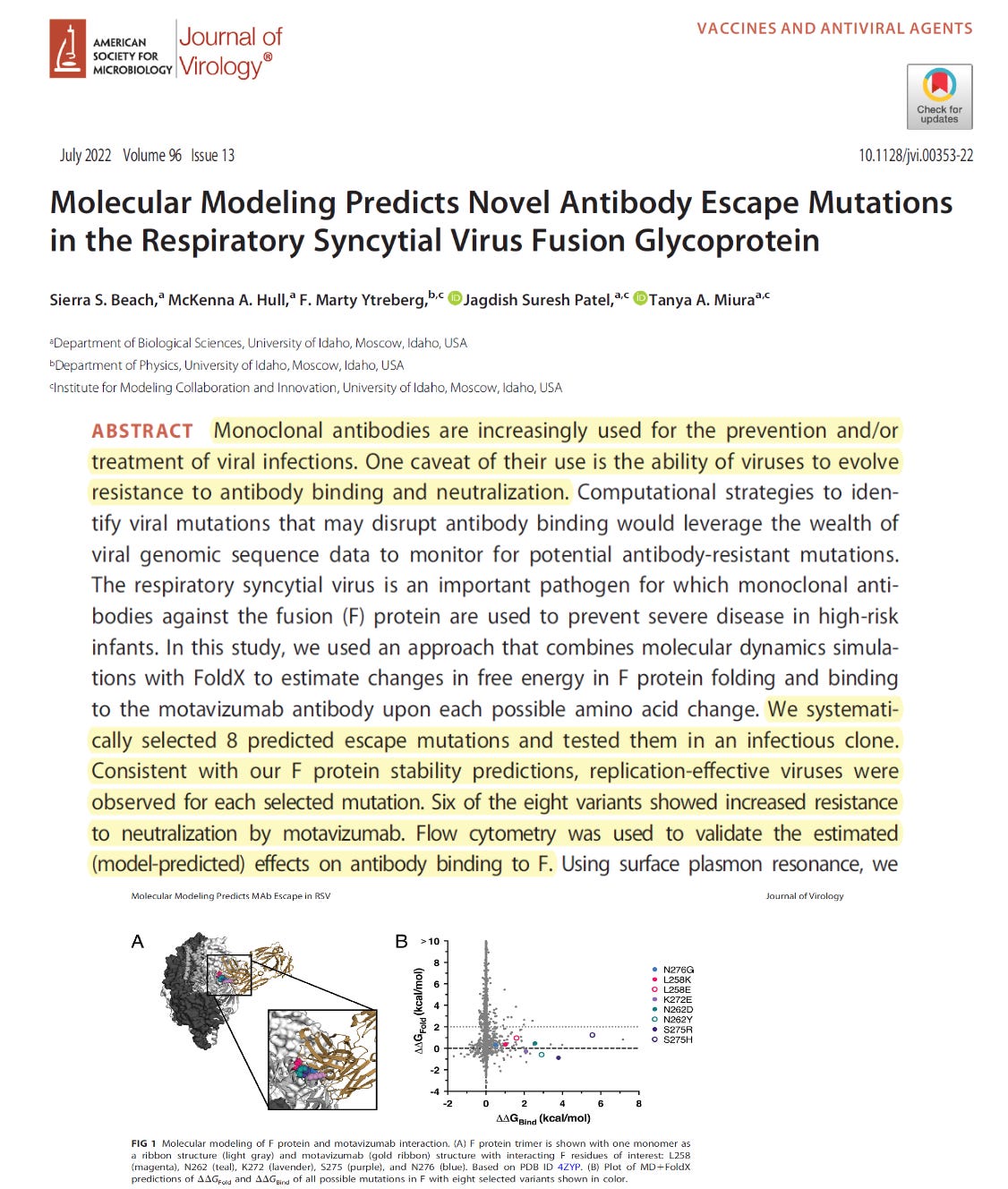Mutational Resistance Expected with Mass Indiscriminate Nirsevimab Injection of Infants
Analysis Demonstrates RSV Will Easily Mutate to Escape Monoclonal Antibodies
By Peter A. McCullough, MD, MPH
The US FDA repeatedly pulled monoclonal antibodies against SARS-CoV-2 off the market because modeling studies demonstrated emerging mutational resistance. I wondered if the same challenges will exist for nirsevimab (Beyfortis, Sanofi, AstraZeneca) which have been injected in newborns on a mass indiscriminate basis since October, 2023 for the theoretical prevention of respiratory syncytial virus (RSV).
In the last few years, the RSV market has been flooded with monoclonal antibodies. The development of motavizumab, nirsevimab, and palivizumab for prevention RSV in infants and children, has brought new concerns about resistant strains. Infrequent use of palivizumab for severe cases in Korea has not provoked resistance as shown by Choi et al. While the RSV fusion protein in the population has been stable over many years before widespread new technology (monoclonal antibodies and vaccines), could mass indiscriminate use provide sufficient ecological pressure to create new super RSV bugs putting everyone at risk?
While the totality of research suggests the mutational ability of RSV will be far less than SARS-CoV-2, I found it interesting that Beach et al from the University of Idaho, easily demonstrated RSV mutational resistance to motavizamab in 2022.

“We systematically selected 8 predicted escape mutations and tested them in an infectious clone. Consistent with our F protein stability predictions, replication-effective viruses were observed for each selected mutation. Six of the eight variants showed increased resistance to neutralization by motavizumab. Flow cytometry was used to validate the estimated (model-predicted) effects on antibody binding to F. Using surface plasmon resonance, we determined that changes in the on-rate of motavizumab binding were associated with the reduced affinity for two novel escape mutations.”
As a clinician, it makes more sense to me to reserve monoclonal antibodies for acute treatment in high-risk cases where mechanical ventilation and death are potential consequences such as children with severe lung disease at baseline. With widespread use of monoclonal antibodies on the first day of life, it is very likely RSV resistance will emerge and babies will have been unnecessarily injected with a novel product having no assurances on long-term safety. All the more reason to curtail this new, mass indiscriminate program for newborns before the entire population is put at risk.
Please subscribe to Courageous Discourse as a paying or founder member so we can continue to bring you the truth.
Peter A. McCullough, MD, MPH
President, McCullough Foundation





After the experience with the covid vax, and the preponderance of evidence of its harms, I find it totally incredible that parents are still having their newborns injected indiscriminately for potential respiratory viruses. I wonder what it takes for people to learn, think for themselves, do their own research, etc.
Inconvenient science. There is money to be made. By the date this was published in 2022, these companies were financially committed to these stupid vaccines. It is cheaper for these companies to buy off the media than to worry about potential harms to human health.